Understanding the ECOWAS Protocols on Free Movement. Daily Law Tips (Tip 795) by Onyekachi Umah, Esq., LL.M, ACIArb(UK)
Introduction:
Economic Community of West African States (ECOWAS) is a regional economic community of the countries on the western part of Africa. ECOWAS is created to promote economic integration and cooperation among the countries on the west of Africa, since 1975. The ECOWAS countries are Benin, Burkina Faso, Cabo Verde, Cote d’Ivoire, The Gambia, Ghana, Guinea, Guinea-Bissau, Liberia, Mali, Niger, Nigeria, Senegal, Sierra Leone, and Togo. In 2002, Mauritania, a founding member of the ECOWAS exited in 2002.
This work is designed to expose the benefits of the ECOWAS protocols on free movement of Persons, Residence and Establishment to Nigerians and other citizens of the ECOWAS. It captures the ugly realities on the Nigerian boarders and that of other ECOWAS countries, where Nigerians and migrants are forced to pay for trips that are supposed to be free by law. Also, due to poor legal awareness, many Nigerians seek illegal routes to ECOWAS countries, countries that they really do not need visa to enter.
The ECOWAS Free Movement Protocol:
To promote and achieve economic integration and cooperation in West Africa, four years after the formation of the ECOWAS, on 29 May 1979 member states adopted a Protocol for the Free Movement of Persons, Residence and Establishment within the region. The 1979 Protocol A/P.1/5/79 and its four (4) supplementary Protocols, make up the body of regional law on ECOWAS Free Movement of Persons, Residence and Establishment.
Call for Legal Awareness Articles in English or Pidgin Languages.
On 29 May 2019, the ECOWAS celebrated the 40th anniversary of the Protocol and its advancement of intra-regional mobility and economic development. In 9 days from today, the 1979 Protocol will be 42 years. The 1979 Protocol and its supplementary Protocols will be considered in brief.
- 1979 Protocol A/P.1/5/79 relating to Free Movement of Persons, Residence and Establishment:
The 1979 Protocol initiated the right to community citizens of ECOWAS to enter, reside and establish economic activities in the territory of member states (it abolished visa). Under this, citizens where only required to enter any ECOWAS country with valid travel and health documents. However, a member state has right to refuse the admission of community citizens that are deemed inadmissible under the domestic laws of the member state. This protocol also made the conditions for expulsion of a community citizen.
- 1985 Supplementary Protocol A/SP.1/7/85 on the Code of Conduct for the implementation of the Protocol on Free Movement of Persons, the Right of Residence and Establishment:
This Mandates member states to provide travel documents for their citizens. It creates additional requirement for the better treatment of persons being expelled. Also it creates protections for illegal immigrants and provides sub-regional co-operation for the purpose of preventing or reducing the flow of illegal immigrants.
- 1986 Supplementary Protocol A/SP.1/7/86 on the Second Phase (Right of Residence):
This protocol further mandates member states to grant right of residence to community citizens to seek and maintain income yielding employments. It Condemns mass expulsion of community citizens; however, it allows individual expulsion on certain conditions; like national security, public order, public health and breach of essential residence conditions.
- 1989 Supplementary Protocol A/SP.1/6/89 amending and complementing the provisions of Article 7 of the Protocol on Free Movement, Right of Residence and Establishment:
This amended Article 7 of the 1979 Protocol, to now allow member states to amicably resolve disputes by direct agreement, where dispute is arising from the Protocol on free Movement. However, where there is a failure to resolve dispute amicably, it mandates a fact-finding mission of 3-member states to investigate the complaint and send report with a view of finding solutions.
Call for Legal Awareness Articles in English or Pidgin Languages.
- 1990 Supplementary Protocol A/SP.2/5/90 on the Implementation of the Third Phase (Right to Establishment):
This defines the right of establishment, allowing community citizens and their businesses to be established in territories of the member states, without discrimination from such member states. It prohibits nationalization and confiscation of property of community citizens and then guarantees compensation. The exception to this, is where there are issues of public health, security or public order.
Conclusion:
The ECOWAS free movement is to allow free entry, residence and establishment of citizens of the ECOWAS in any ECOWAS country. By it, all citizens of the countries in the ECOWAS are free to move and visit any of the ECOWAS Countries, without VISA. All that the citizens need, are travel documents and health clearance documents (a passport/travel card and a Yellow Fever Certificate) to stay freely for 90 days without visa in any of the ECOWAS Countries. Once again, the ECOWAS countries are; Benin, Burkina Faso, Cabo Verde, Cote d’Ivoire, The Gambia, Ghana, Guinea, Guinea-Bissau, Liberia, Mali, Niger, Nigeria, Senegal, Sierra Leone, and Togo.
It is the duty of the government of Nigeria and every other ECOWAS Country, to provide travel documents (passports) for the citizens, to enable their citizens travel, explore, get employed, set up businesses and be established in any of the ECOWAS countries. Nigeria and other ECOWAS member states, have a duty to promote free legal awareness to ensure citizens are aware of their rights and
duties. This will reduce the unnecessary use of illegal boarders and routes by Nigerians in accessing other ECOWAS countries, that they are ordinarily free to access without Visa. Free legal awareness will reduce the extortions of Nigerians and immigrants on borders by some staff of government agencies, even when such travellers are not to pay a kobo to access any ECOWAS Country.
Call for Legal Awareness Articles in English or Pidgin Languages.
My authorities, are:
- Sections 1, 2, 3, 4, 5, 6, 12, 33 to 45, 318 and 319 of the Constitution of the Federal Republic of Nigeria, 1999.
- Articles 1, 2, 12, 15, 57, 76, 77, Economic Community of West African State (ECOWAS) Revised Treaty, 1993.
- 1979 Protocol A/P.1/5/79 relating to Free Movement of Persons, Residence and Establishment
- 985 Supplementary Protocol A/SP.1/7/85 on the Code of Conduct for the implementation of the Protocol on Free Movement of Persons, the Right of Residence and Establishment
- 1986 Supplementary Protocol A/SP.1/7/86 on the Second Phase (Right of Residence)
- 1989 Supplementary Protocol A/SP.1/6/89 amending and complementing the provisions of Article 7 of the Protocol on Free Movement, Right of Residence and Establishment
- 1990 Supplementary Protocol A/SP.2/5/90 on the Implementation of the Third Phase (Right to Establishment)
- Onyekachi Umah, “An Alternative to Courts for Human Rights Cases” (LearnNigerianLaws.com, 14 May 2021) <https://sabilaw.org/an-alternative-to-courts-for-human-rights-cases/> accessed 19 May 2021.
- Onyekachi Umah, “How and When Nigeria Can Exit the AFCFTA” (LearnNigerianLaws.com, 16 March 2021) <https://sabilaw.org/how-and-when-nigeria-can-exit-the-afcfta/> accessed 19 May 2021.
- Onyekachi Umah, “ECOWAS Court as a Weak Alternative to Nigerian Courts” (LearnNigerianLaws.com, 20 May 2021) <https://sabilaw.org/ecowas-court-as-a-weak-alternative-to-nigerian-courts/> accessed 19 May 2021.
Sabi Law Projects:
#SabiLaw
#DailyLawTips
#SabiBusinessLaw
#SabiElectionLaws
#SabiHumanRights
#SabiLawOnTheBeatFm
#SabiLawLectureSeries
#CriminalJusticeMonday
#SabiLawVideoChallenge
Speak with the writer, ask questions or make inquiries on this topic or any other via onyekachi.umah@gmail.com, info@LearnNigerianLaws.com or +2348037665878 (whatsapp). To receive free Daily Law Tips, join our free WhatsApp group via https://chat.whatsapp.com/L7h4f1exItZ38FeuhXG4WN or Telegram group, via the below link: https://t.me/LearnNigerianLaws
To keep up to date on all free legal awareness projects of Sabi Law Foundation, follow us via
Facebook Page:@LearnNigerianLaws,
Instagram:@LearnNigerianLaws,
Twitter: @LearnNigeriaLaw,
YouTube: Learn Nigerian Laws,
WhatsApp Groups via (https://chat.whatsapp.com/L7h4f1exItZ38FeuhXG4WN),
Telegram Group: (https://t.me/LearnNigerianLaws),
Facebook group: (https://www.facebook.com/groups/129824937650907/?ref=share)
or visit our website: (www.LearnNigerianLaws.com)
Please share this publication for free till it gets to those that need it most. Save a Nigerian today! NOTE: Sharing, modifying or publishing this publication without giving credit to the author or Sabi Law Foundation is a criminal breach of copyright and will be prosecuted. This publication is the writer’s view not a legal advice and does not create any form of relationship. You may reach the writer for more information.
This publication is powered by www.LearnNigerianLaws.com {A Free Law Awareness Program of Sabi Law Foundation, supported by the law firm of Bezaleel Chambers International (BCI).} Sabi Law Foundation is a Not-For-Profit and Non-Governmental Legal Awareness Organization based in Nigeria. For sponsorship and partnership, contact: sponsorship@learnnigerianlaws.com, sabilaw.ng@gmail.com or +234 903 913 1200.


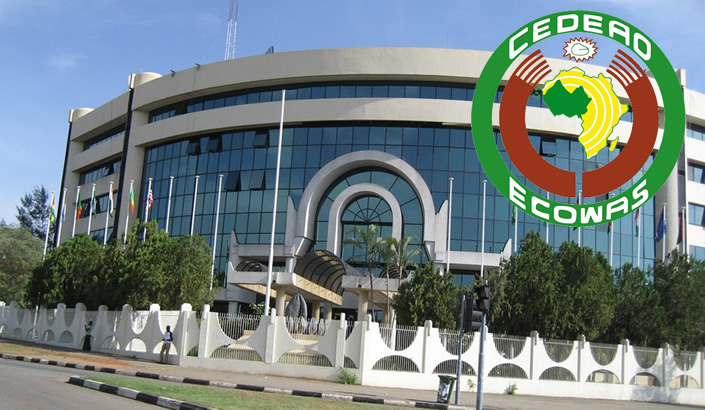









































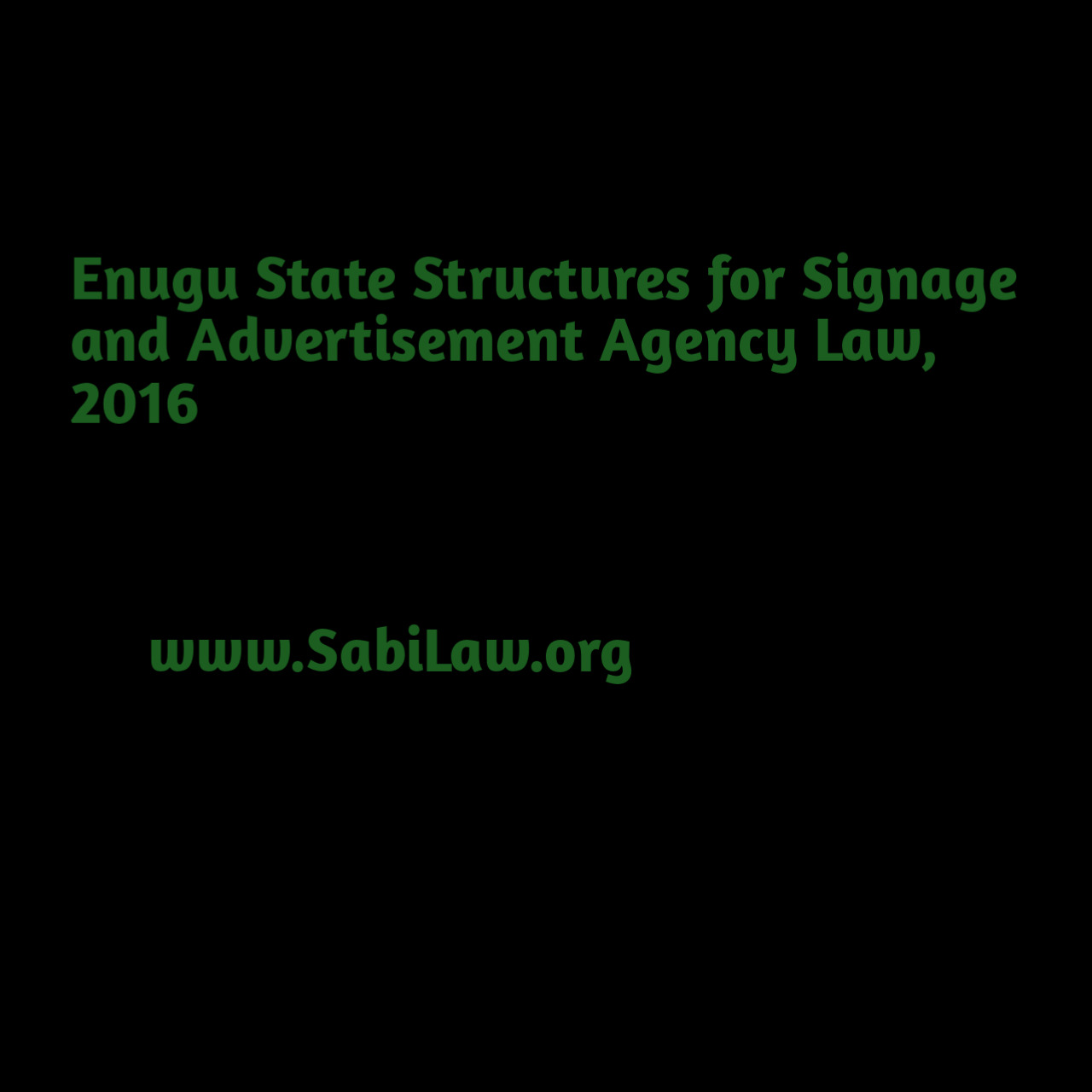
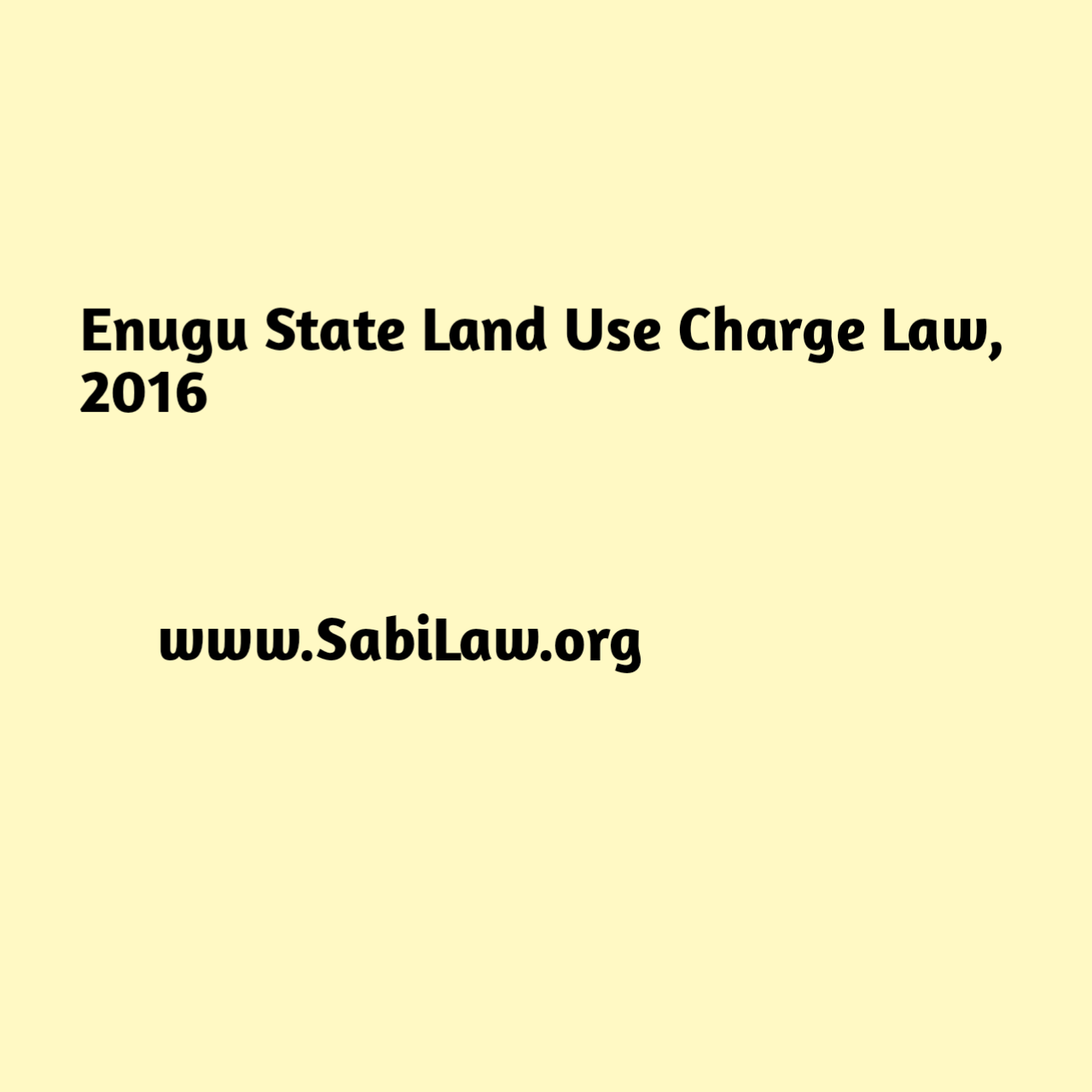
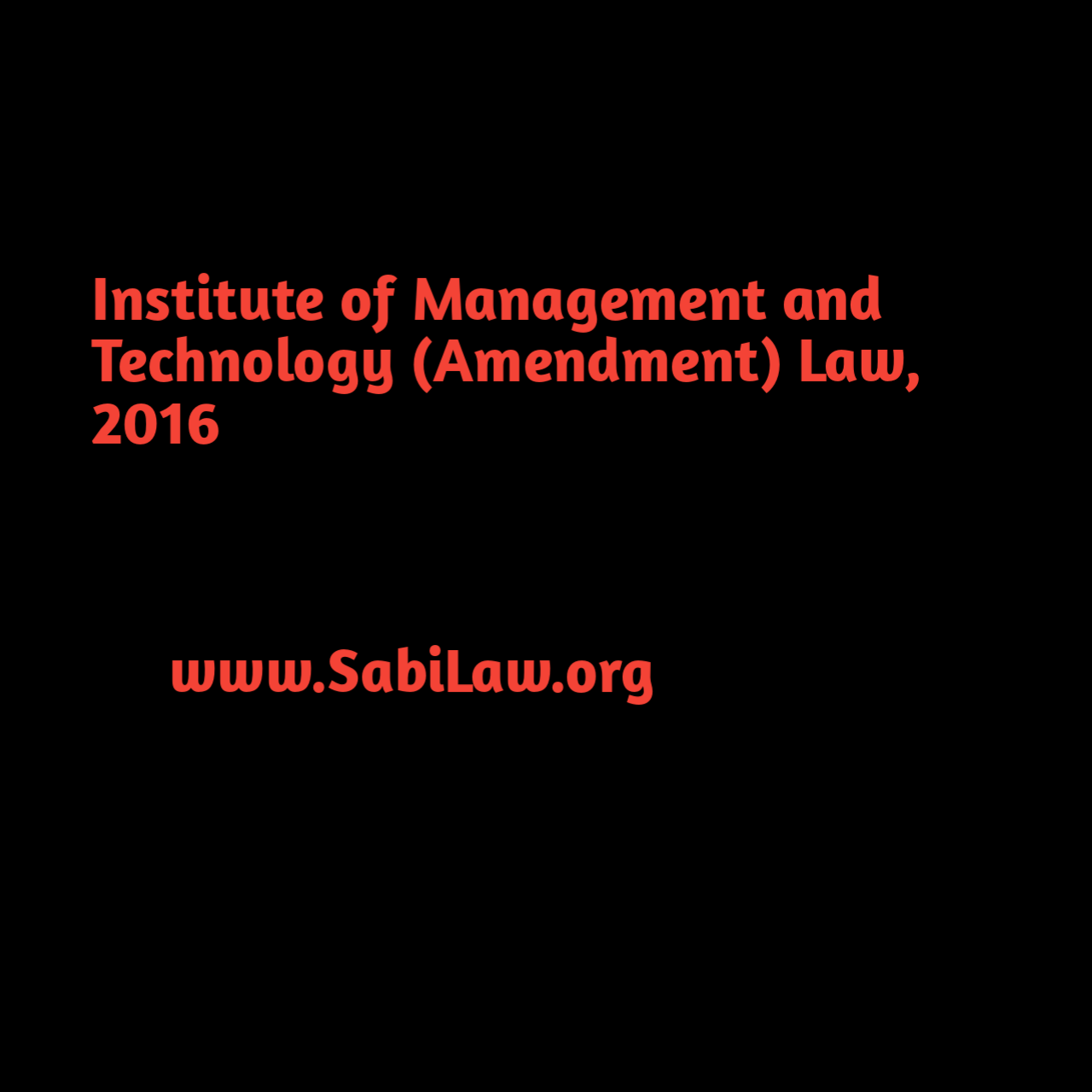
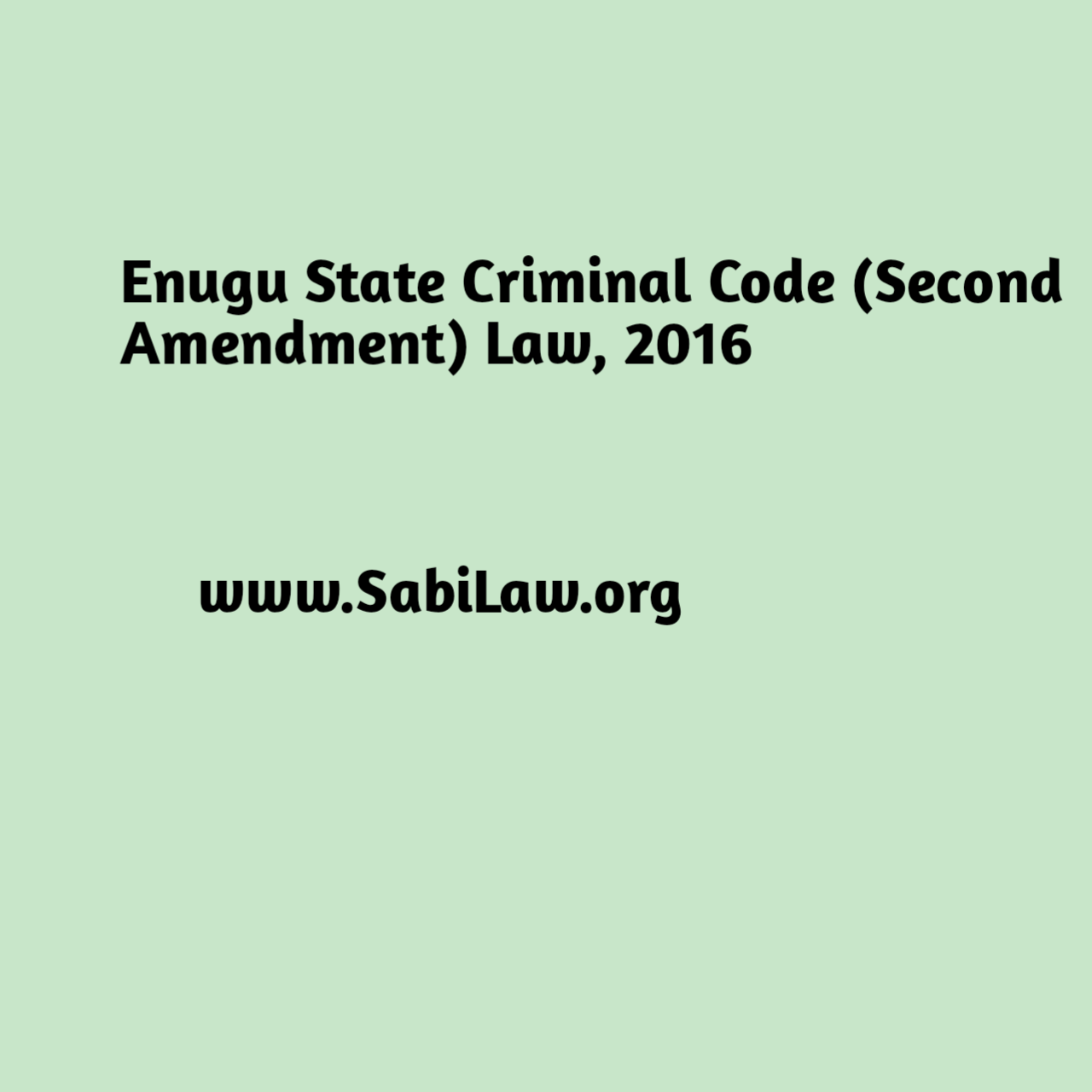
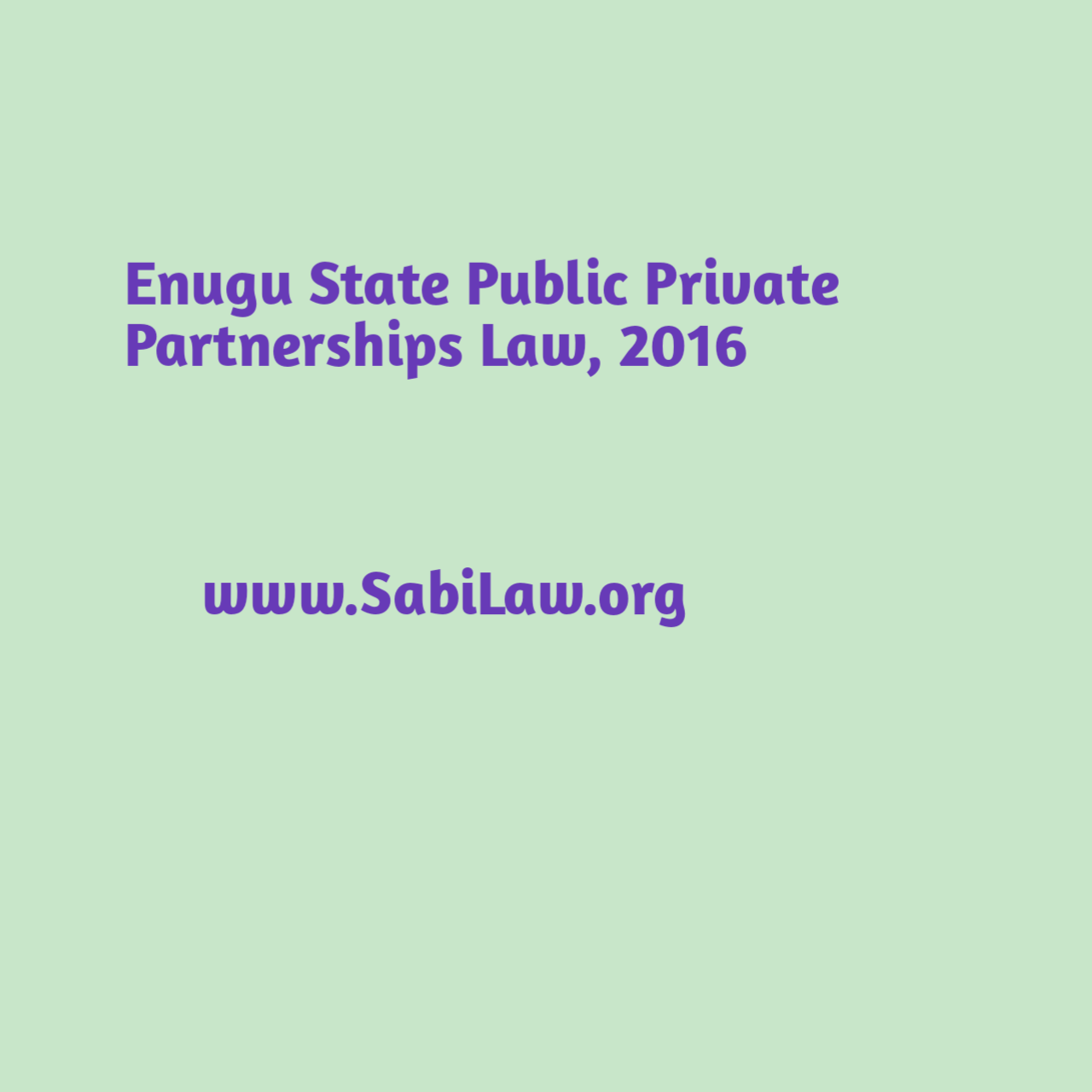
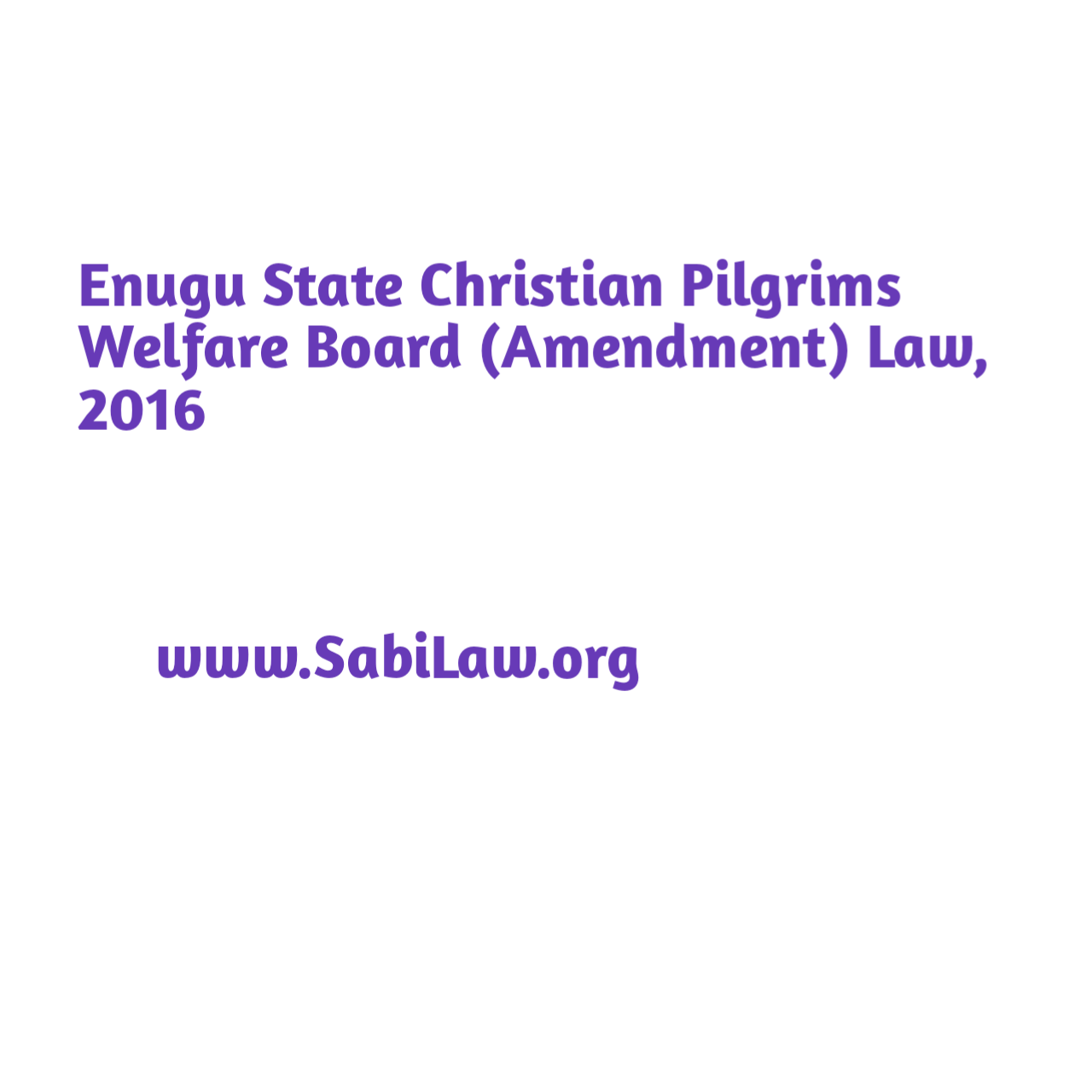
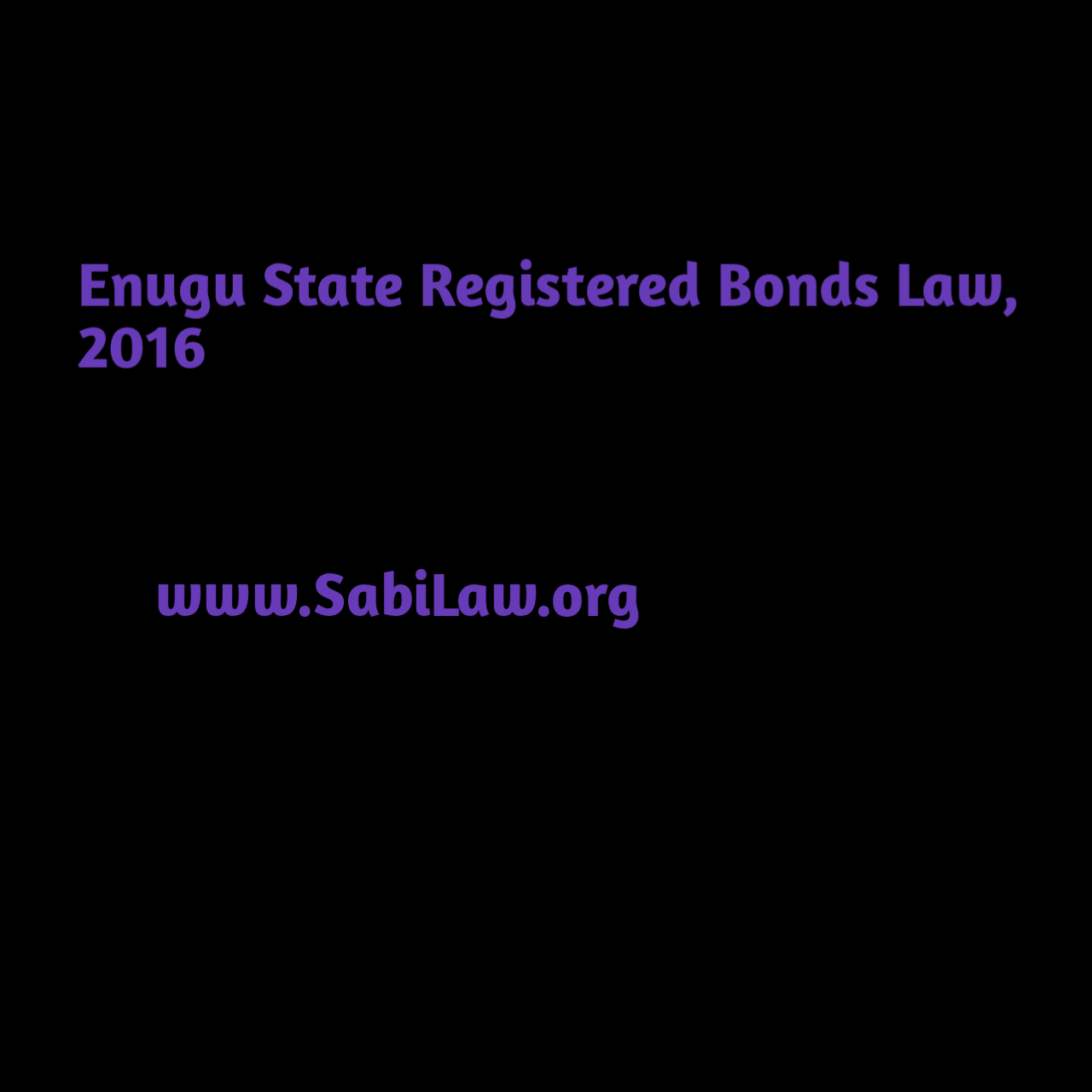
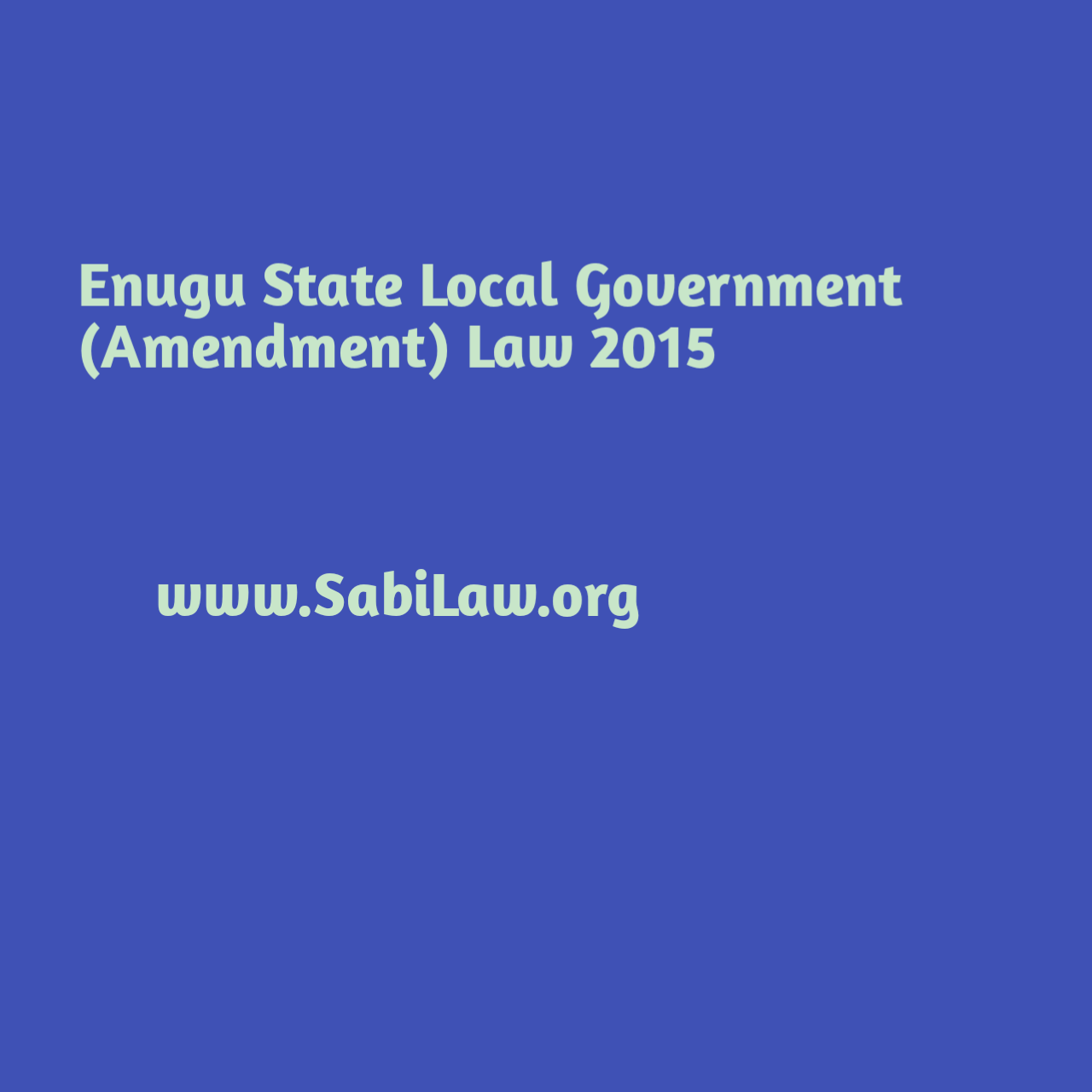
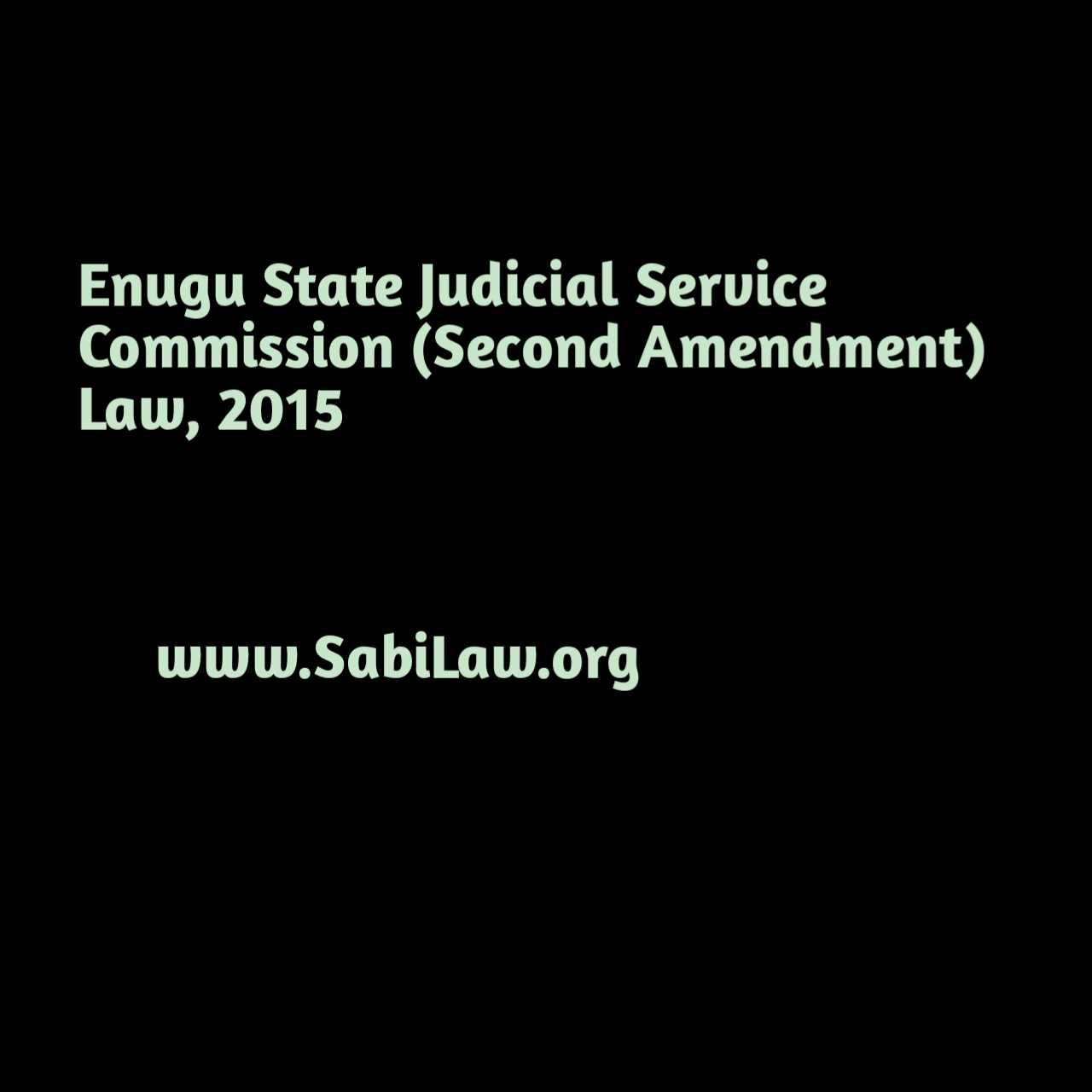
One Response
Amazing blog! Do you have any recommendations for aspiring writers?
I’m hoping to sstart my own site soon but I’m a little lost onn everything.
Would you propose startring with a free platform like
Wordpress or go for a paid option? There are so many
options out there that I’m totally confused .. Any tips?
Bless you!
php patterns